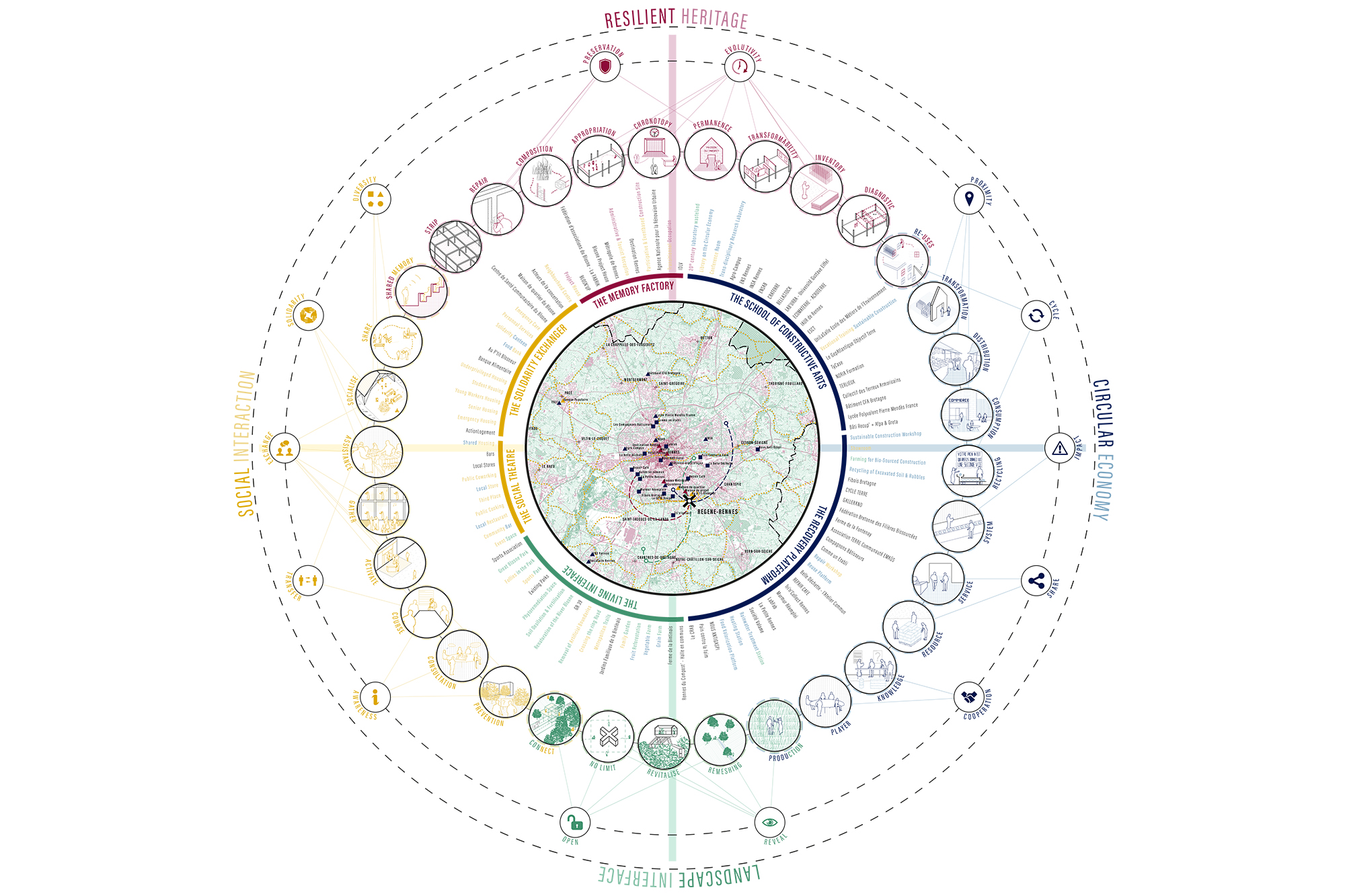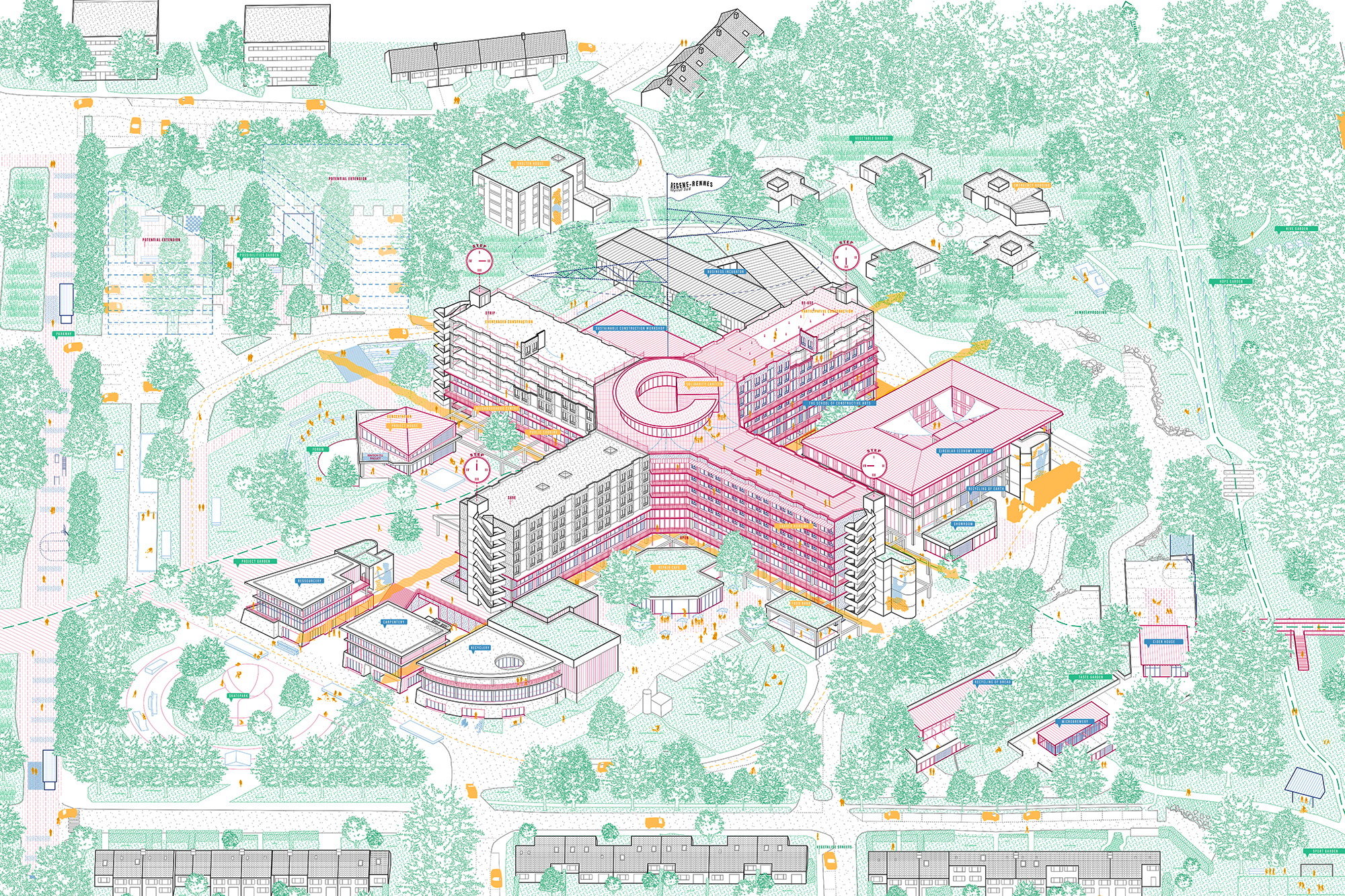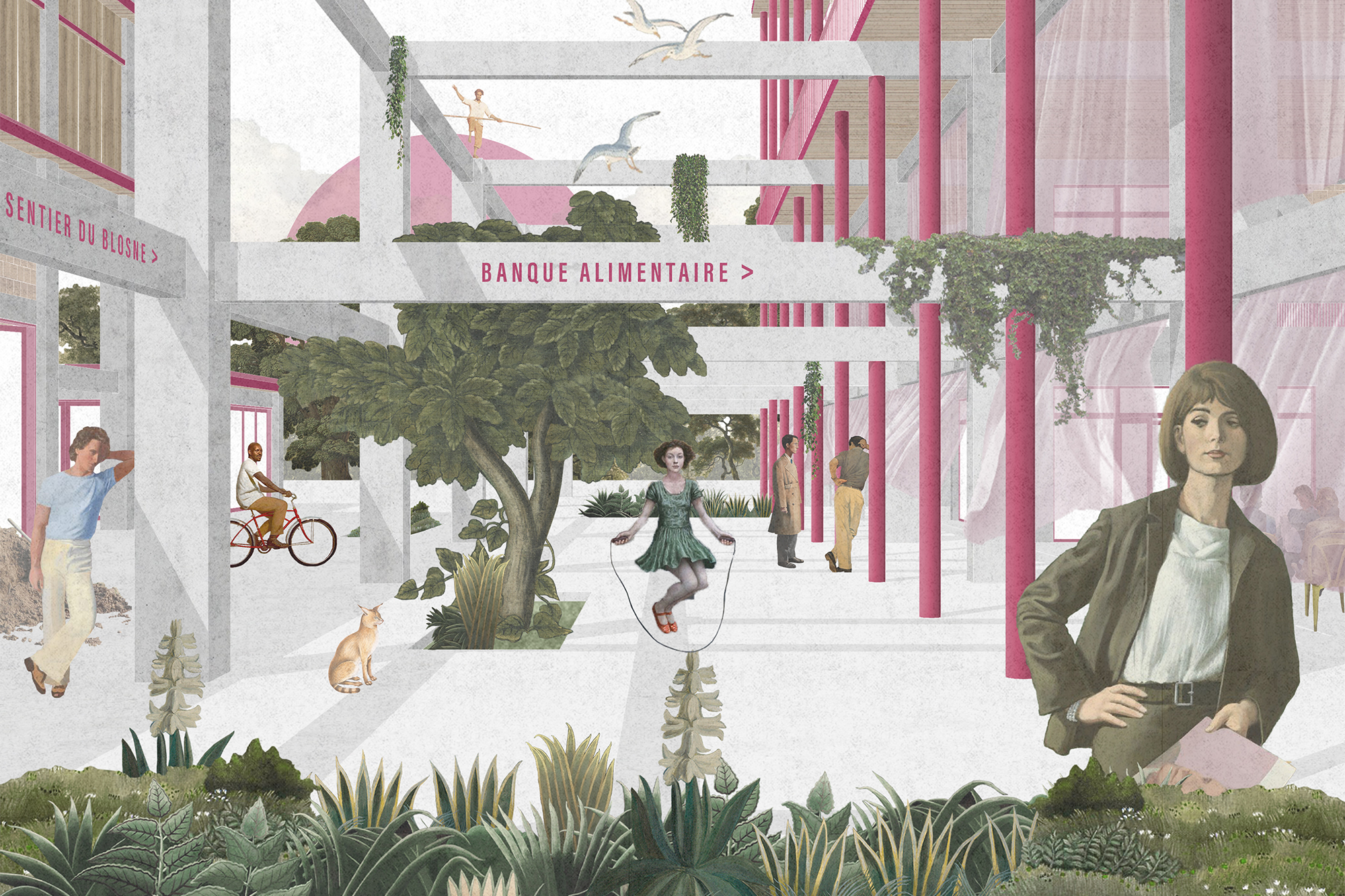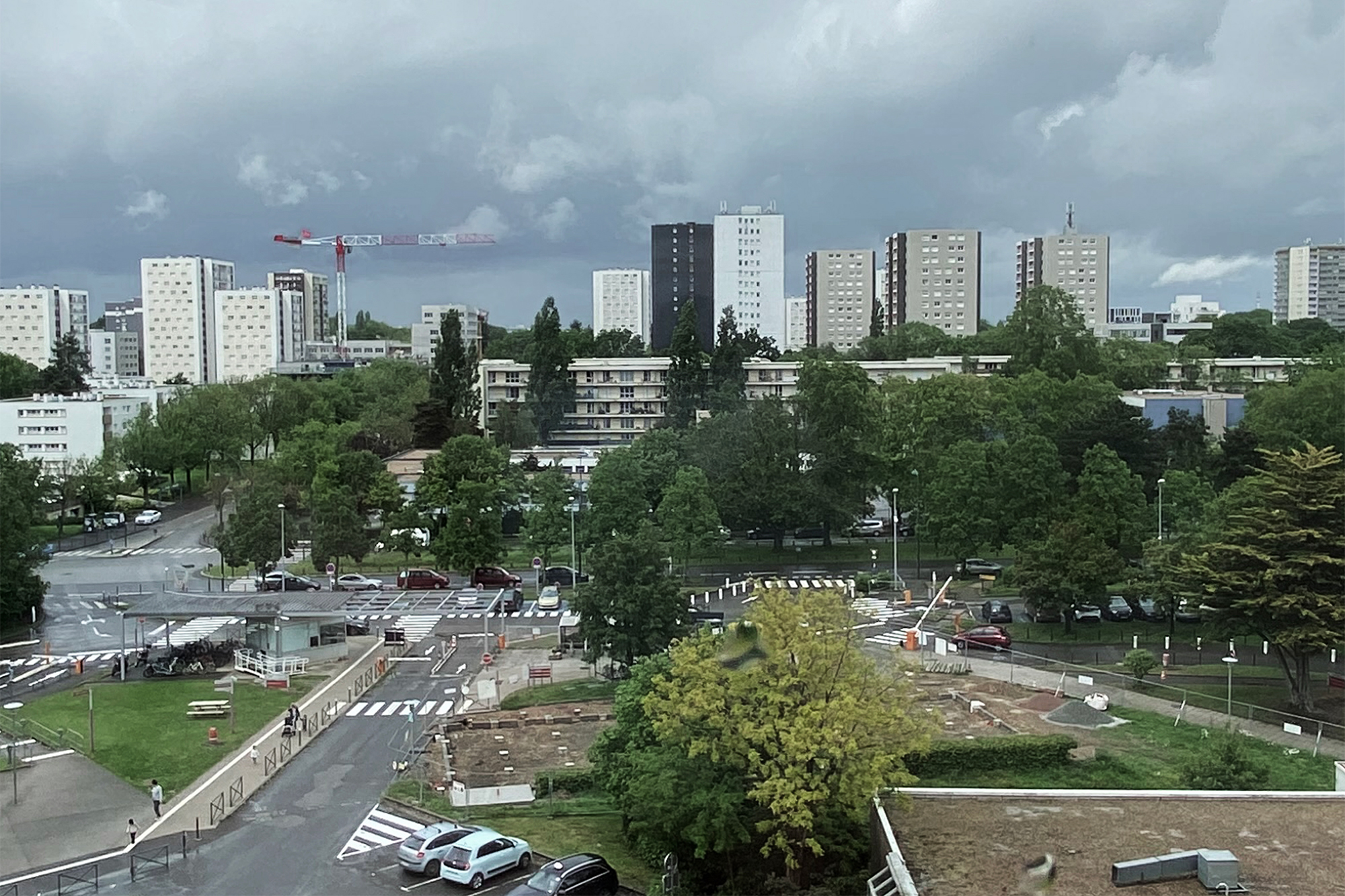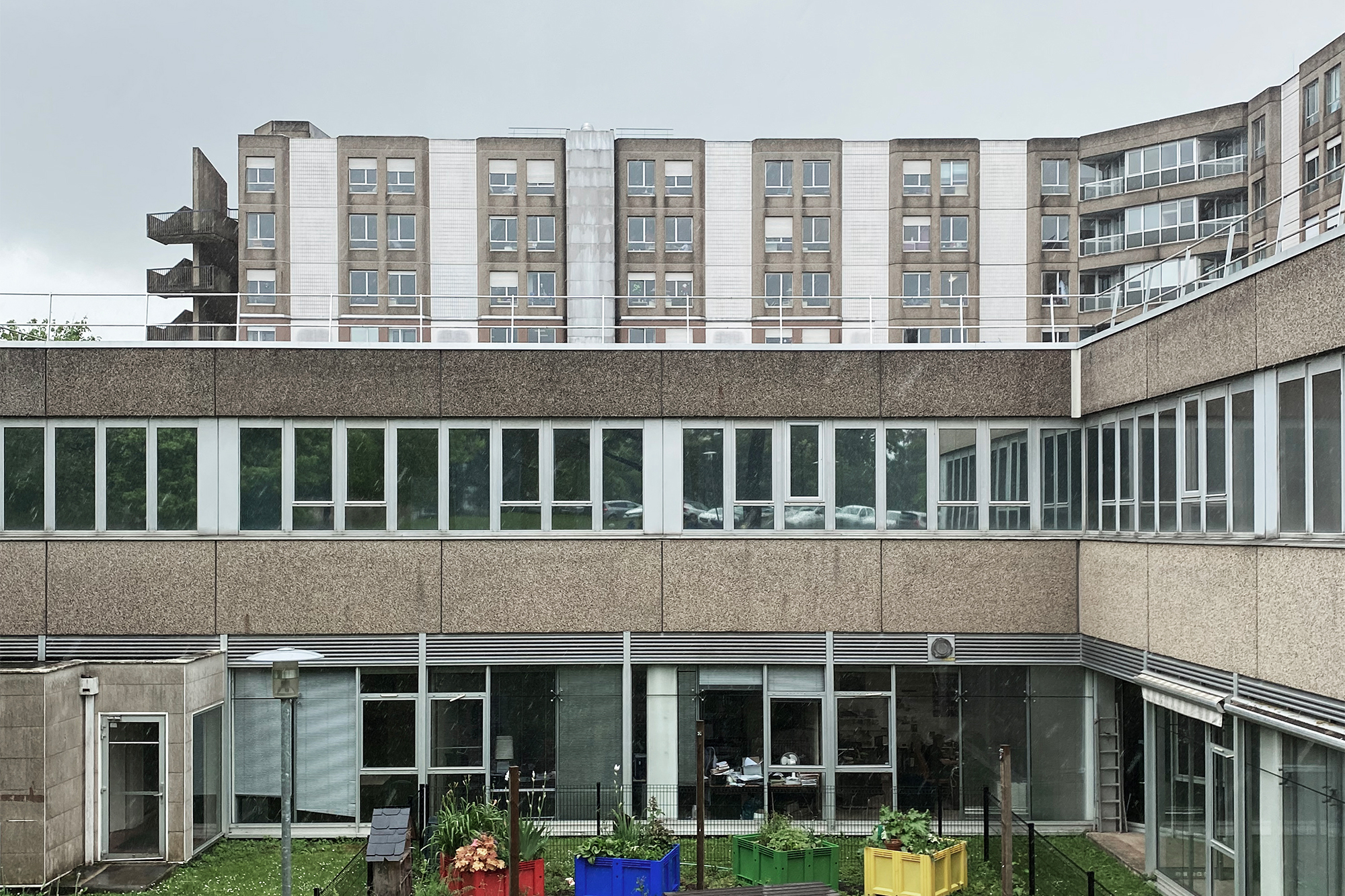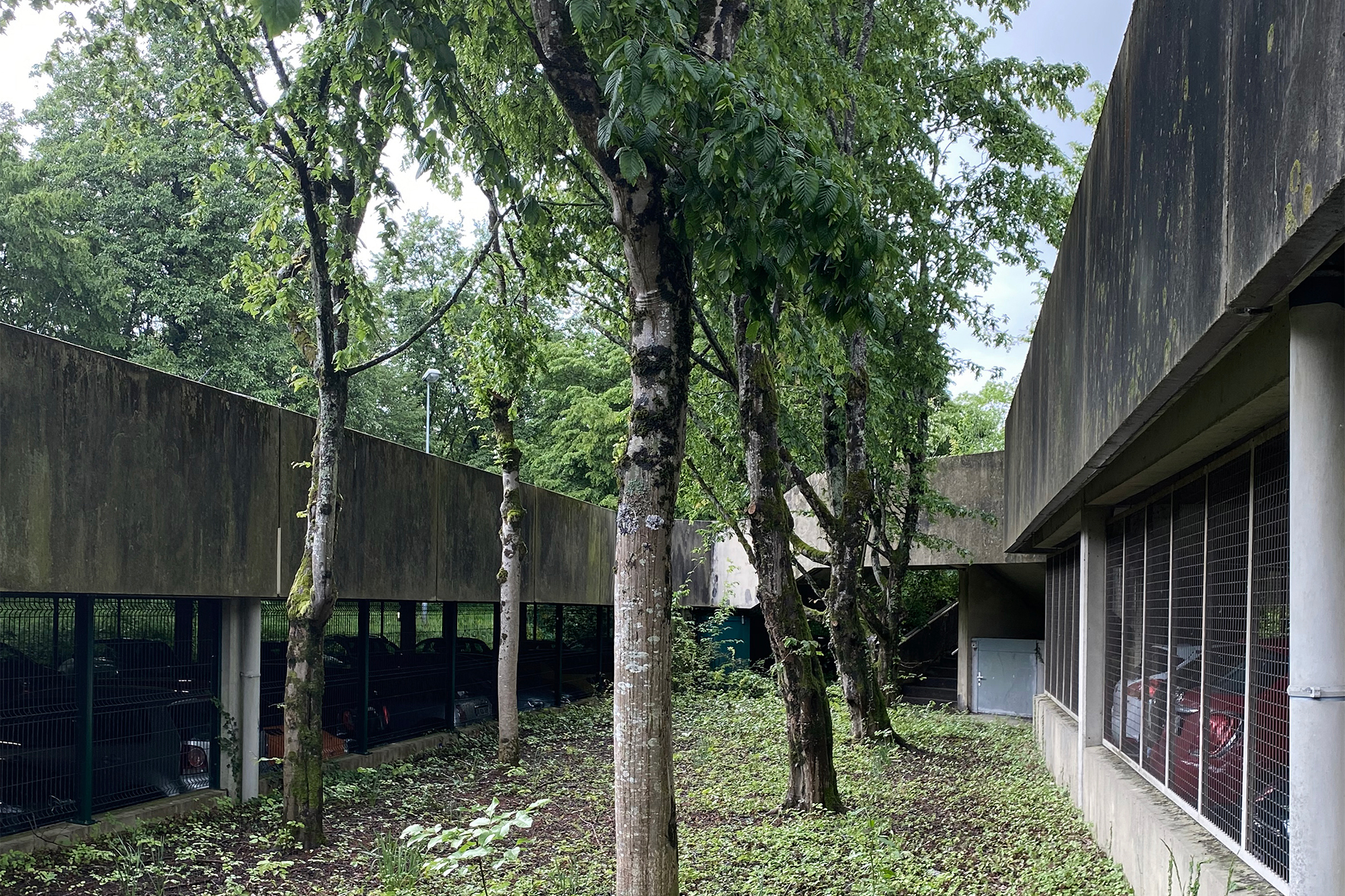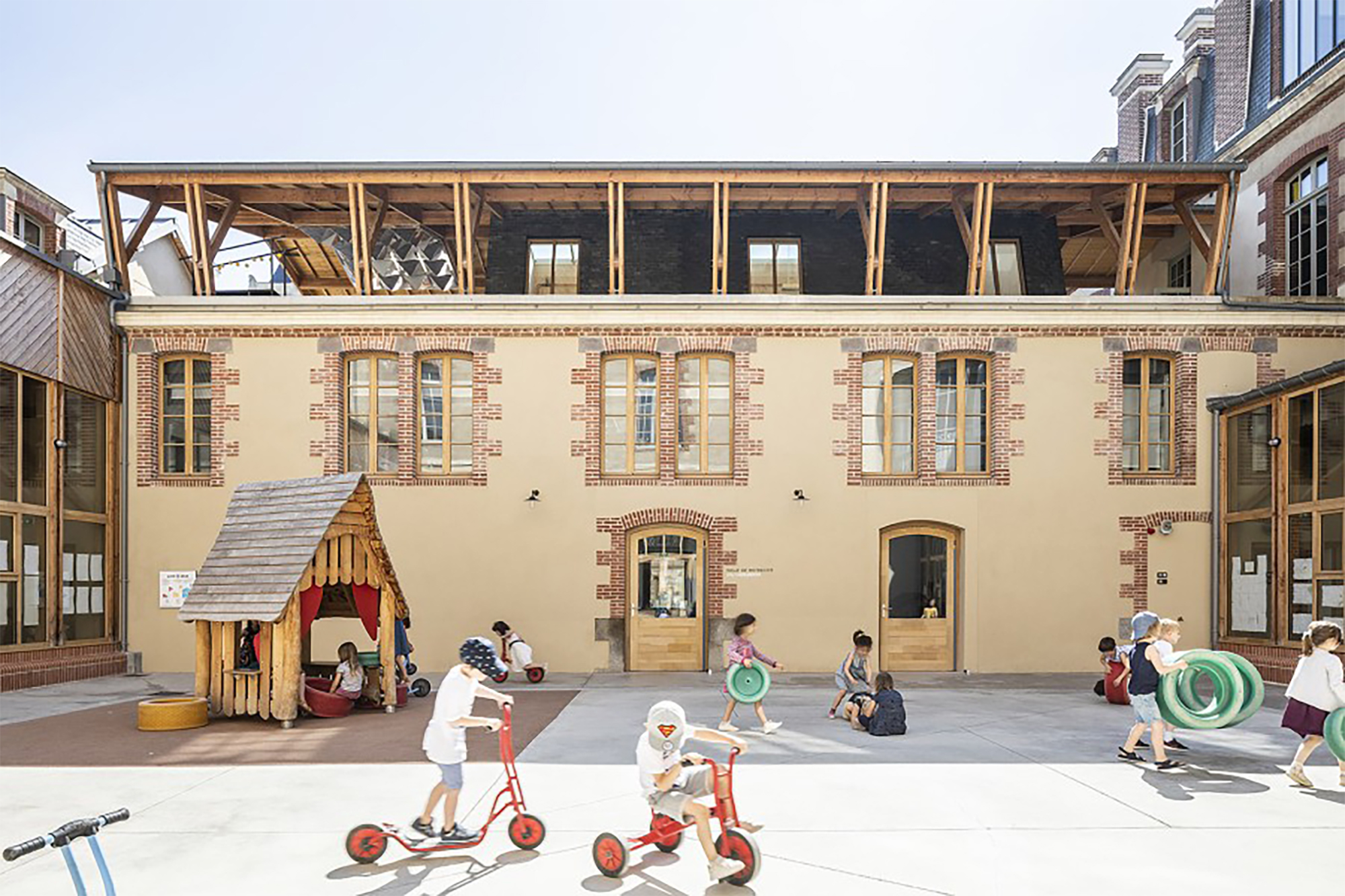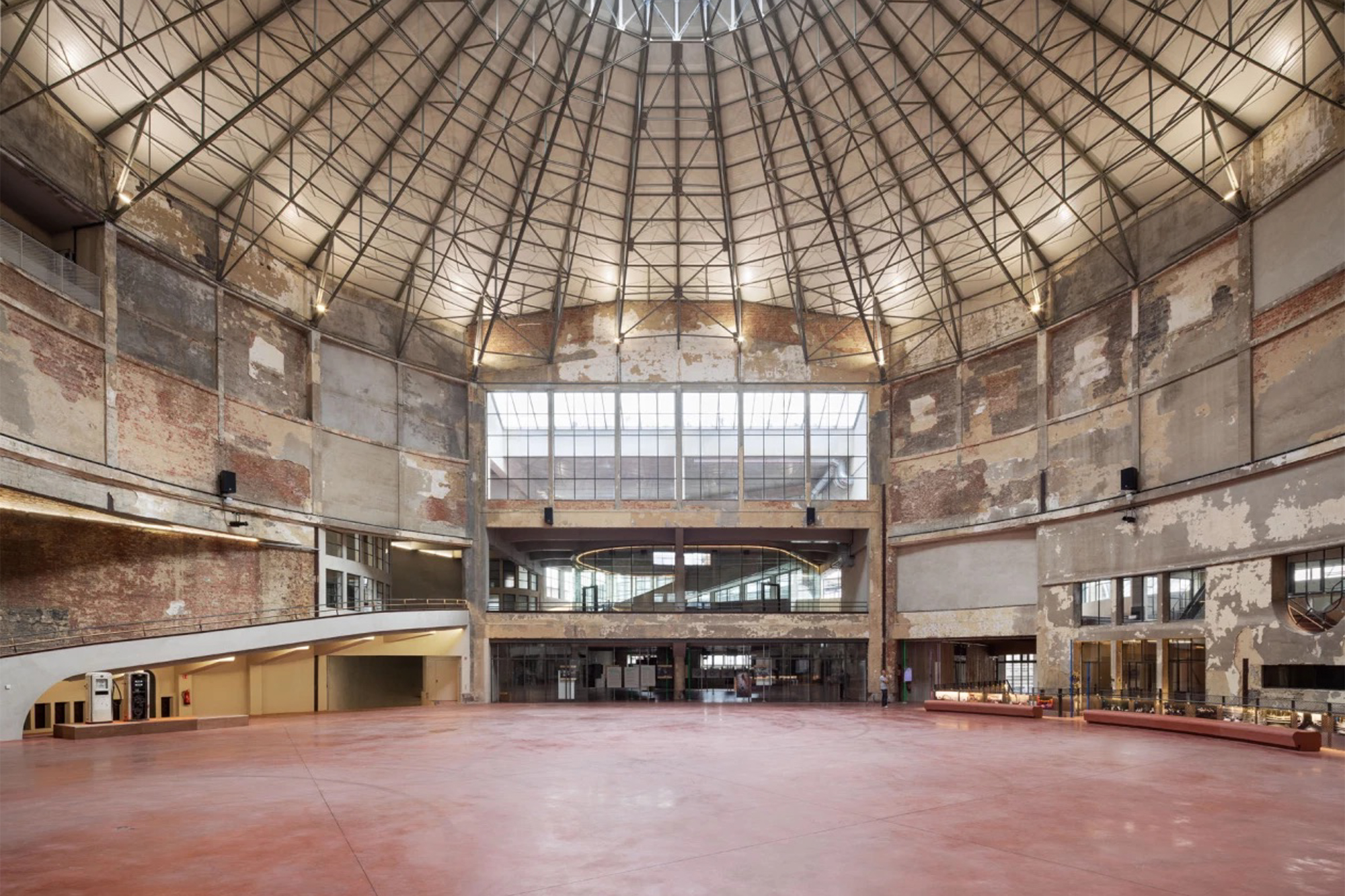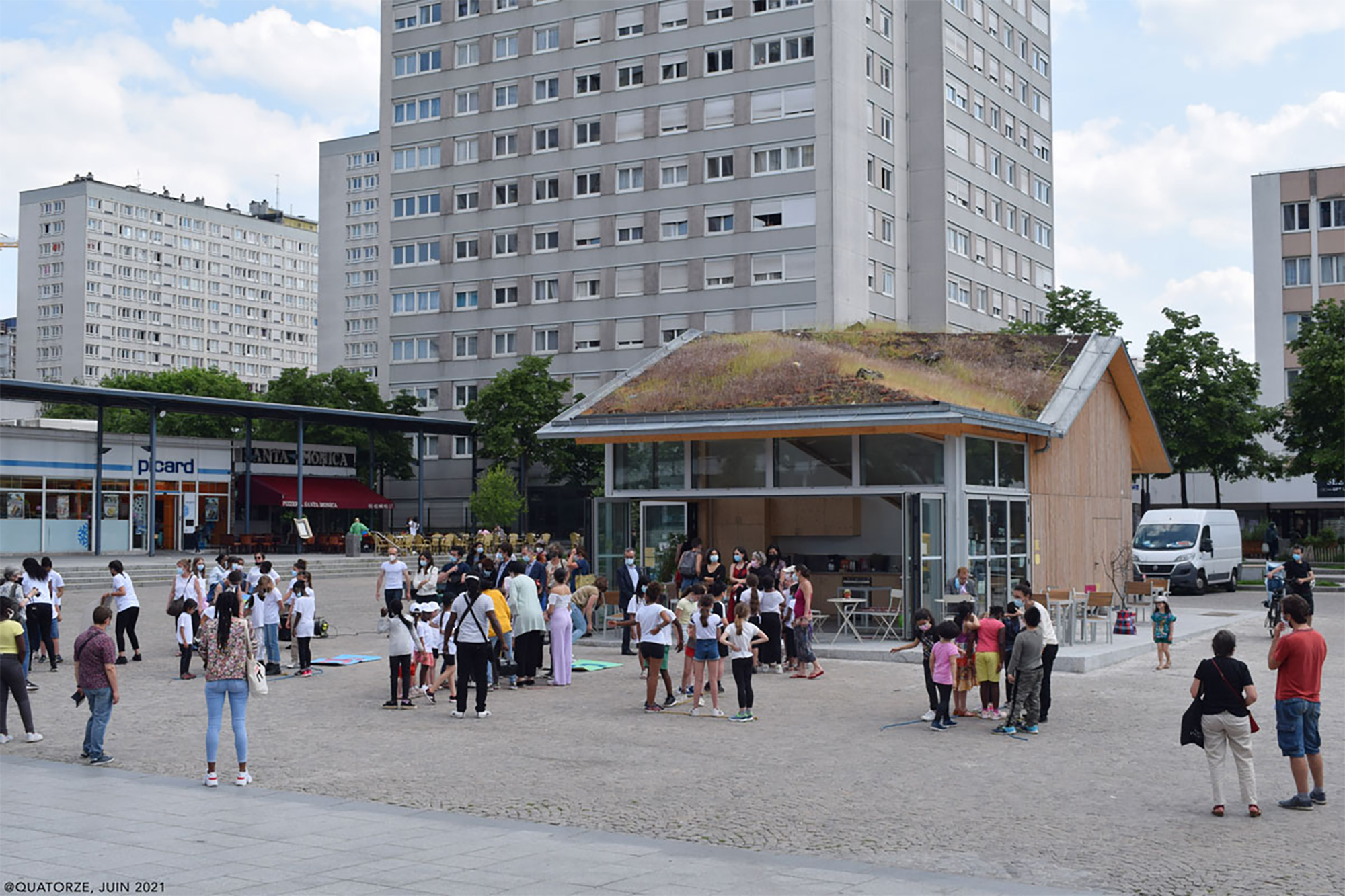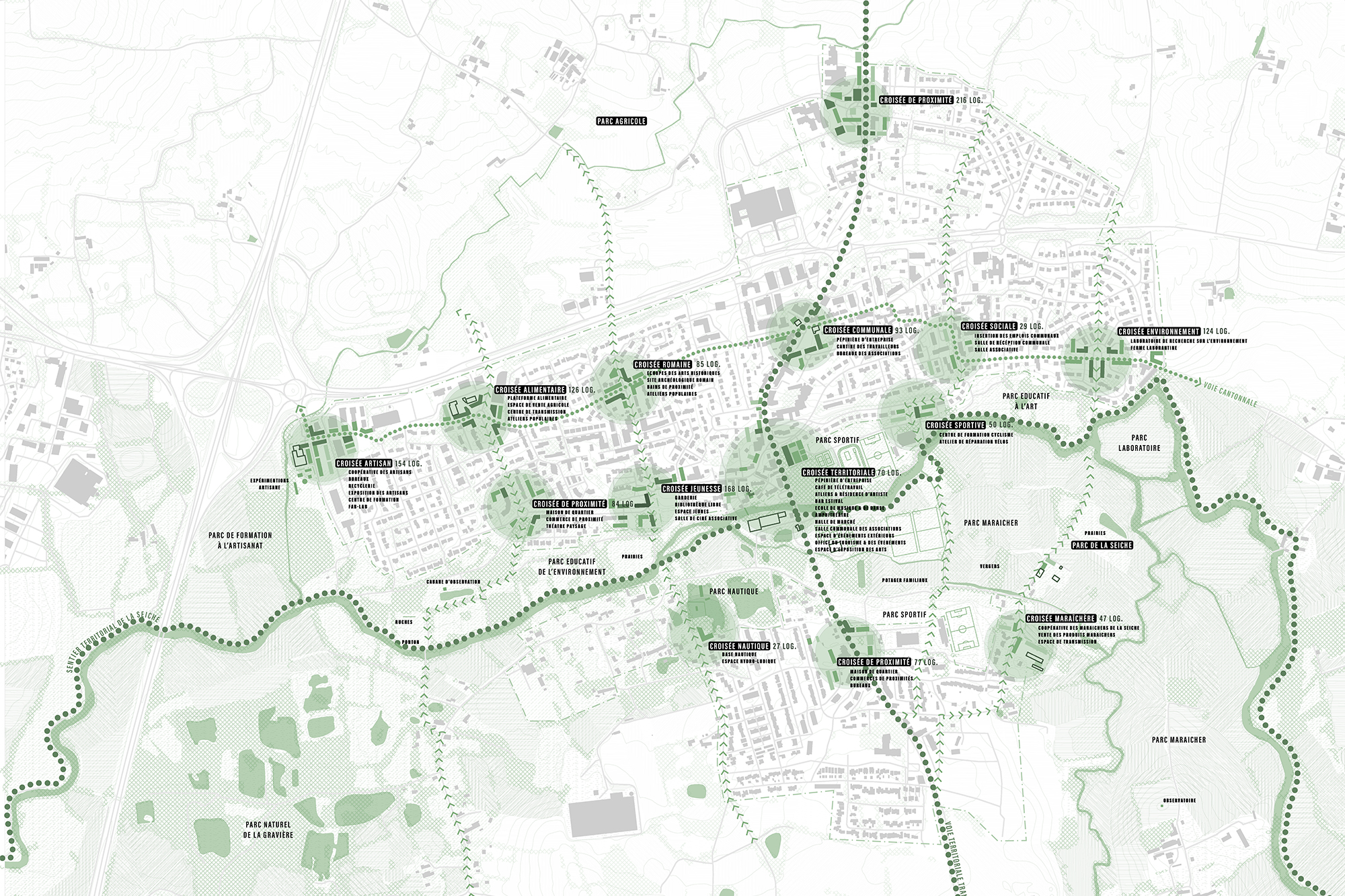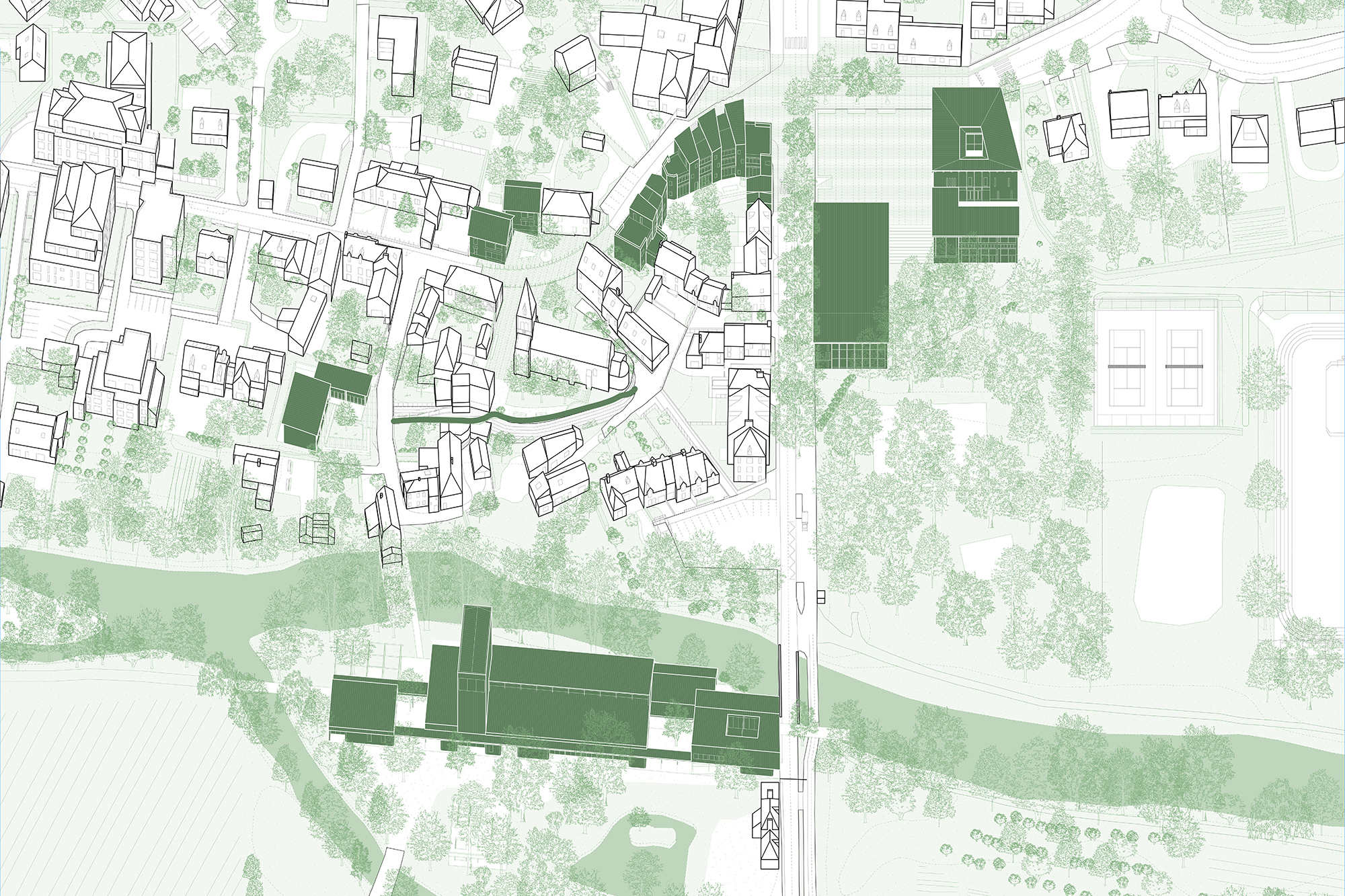REGENE-RENNES
Rennes (FR) - Special Mention

TEAM PORTRAIT
VIDEO (by the team)
INTERVIEW
Click on the images to enlarge
1. How do you define the main issue of your project in relation with the theme “Living Cities Imagining architecture taking care of the milieus”? And in which way do you think your project can contribute to an ecological and/or social evolution?
How can architecture create the missing link in a new environmental and social chain for the city? The project proposes to create an evolving incubator for individual and collective initiatives that revolve around shared values linked to the environment and social cohesion, and that can generate circular synergies to enhance the city and its environments.
2. How did the issues of your design and the questions raised by the site mutation meet?
Two questions guided our design: How can we develop a living interface between town and country while limiting sprawl? ; How can we create a local circular economy based on solidarity? Just as Le Rheu was for the archipelago city, Régéné-Rennes is breathing new life into this self-regenerating area by becoming the hospital of the archipelago city.
PROJECT:



Part of the team worked on the archipelago city and its issues during their 5 years of study, through project workshops, research work and particularly during their PFE. Another part of the team has already experimented with regeneration principles on a more domestic scale. Our references include Cycle terre by Joly & Loiret architecte in 2021 for its programme; Bois le prêtre by Lacaton Vassal for its intervention process; Mehr als wohnen by Dansk arkitektur center in 2015 for its work on housing typologies and Pc Caritas by ADDVT for the quality of its rehabilitation.
SITE:



The first step in the project was to draw up an inventory of the forces at work in the area, including residents, associations, professionals, resources and places that could be involved in the project. The project aims to define an architecture in motion, with programming that is both open to question and based on clear principles that promote social relations and environmental protection.
REFERENCES:



Remy Itard, Jules Padioleau and Léonard Pinel met there and the team was formed during the course of their studies, forming a complementary working group. Fleur Morin has added her professional experience to the team. The whole group has a similar approach to the project.
6. How could this prize help you in your professional career?
This prize will enable us to promote our work by giving it national and European visibility. It has also given part of the team the opportunity to extend their training by working on a practical subject and facing a professional jury. In the future, we want to work on public commissions, and this competition is a first step towards that sector. Finally, Europan was a local laboratory for experimentation in our professional practice, enabling us to explore a new scale of project.
TEAM IDENTITY
Legal status: Association + Architecture company
Team name: Collectif PPI + Clef Architecture
Average age of the associates: 24 years old
Has your team, together or separately, already conceived or implemented some projects and/or won any competition? if so, which ones?
The Docexdoce competition, the !MPACT competition and the PJTA Rennes Prize. Renovation of a Breton farmhouse into 3 homes, renovation of the Seine-Saint-Denis tennis committee, development of a community restaurant in Paris 13.
WORKS:



